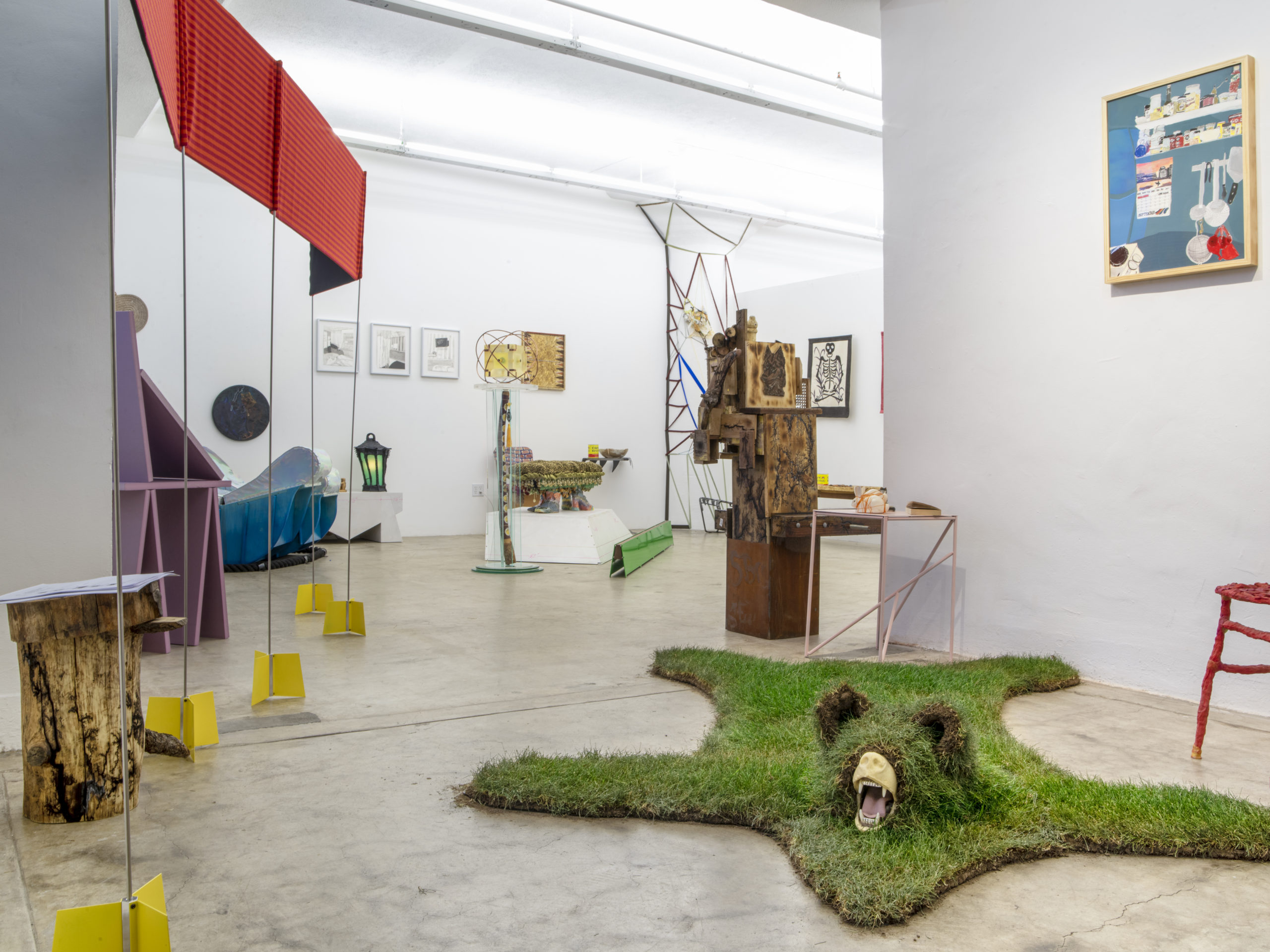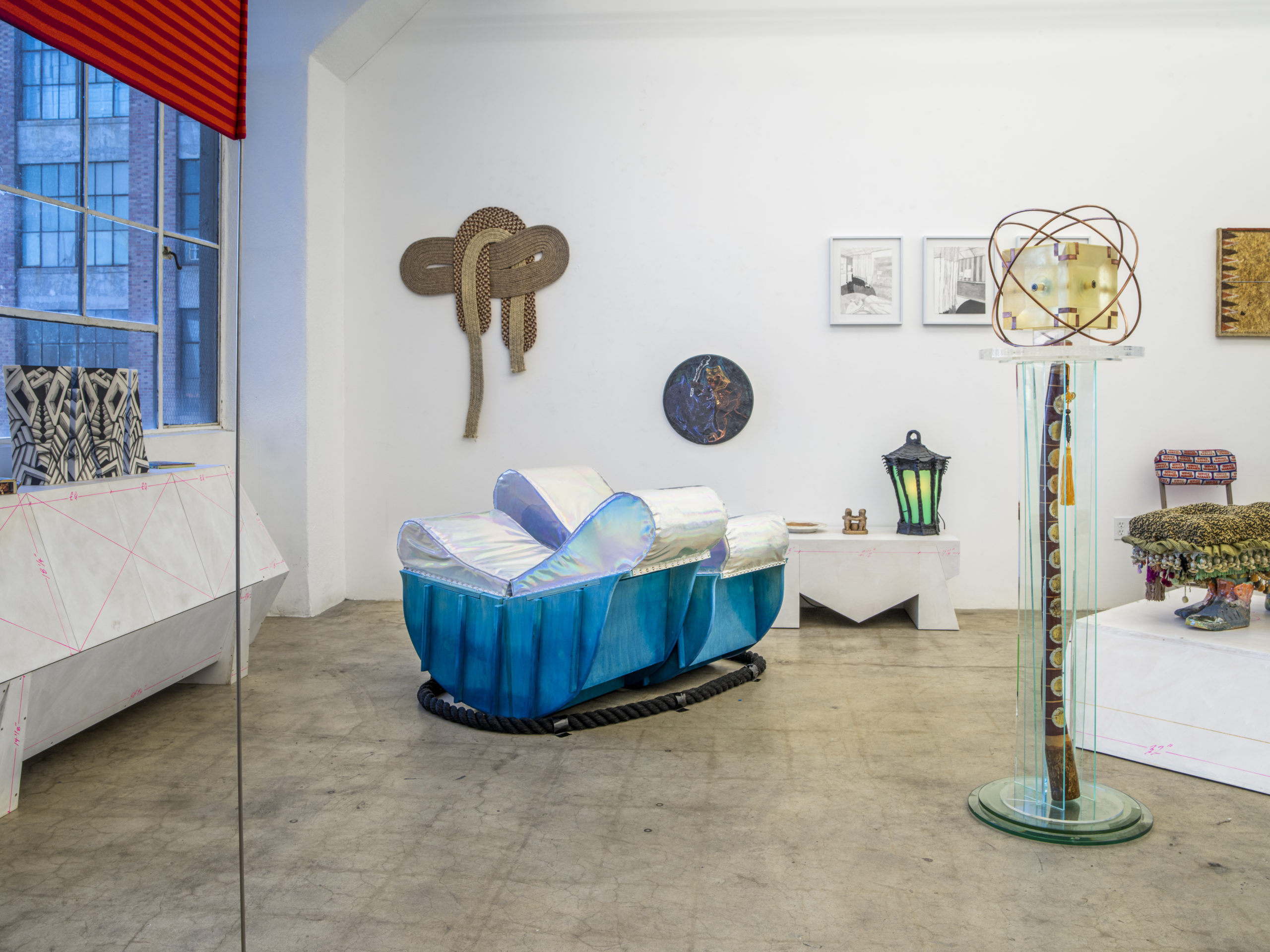
All photos courtesy of Tiger Strikes Asteroid
By Noah Sonnenburg
For those of us in California, months have passed since Governor Gavin Newsom first announced a statewide shelter-in-place order. Since then, Los Angeles has experienced stages of reopening, surges in cases, the possibility of a new stay-at-home order, and general uncertainty. In keeping with the closing of non-essential businesses and heeding sound advice to limit large gatherings, fine art institutions have been forced into some hard thinking about their return to public availability and the way their work impacts their communities.
Tiger Strikes Asteroid (TSA), a group of independently operated, artist-run exhibition spaces, is one such organization. Tiger Strikes Asteroid Los Angeles (TSALA), their SoCal branch, shut their doors on March 19th when Gov. Newsom first called on all Californians to shelter-in-place.
Before the pandemic, business was booming for TSALA. The collective had been seeing increased attendance at their events in the weeks leading up to the order. The credit for this growing population was due in large part to close collaboration between TSALA and other exhibition spaces in their Arts District headquarters, the Bendix Building.
“We were able to get 12 galleries to open the same night every six weeks,” said Carl Baratta, Co-Director of TSALA in an interview with PR for Artists.
Before these 12 galleries banded together, the foot traffic through their spaces was far more tepid.
“When we were working individually, if we had 40 or 50 people in, we would be high-fiving each other for weeks,” said Baratta. “With everyone working together, it just went up and up.”
With a strong sense of community and a variety of free, local parking options, attendance at TSALA shows skyrocketed. But then came the pandemic.
“On the opening we had before the building was closed, we had 600 people go through,” said Baratta. “What ended up happening with the virus was that our greatest strength became our greatest weakness.”

All photos courtesy of Tiger Strikes Asteroid
TSALA had an opening scheduled for Saturday, March 21. However, as March 19 approached murmurs spread through the building that business would come to a screeching halt. Two days of apprehensive preparation ended with show spaces abandoned with work still hung on walls and one sculpture partially composed of Cheeto dust left to fester in an unventilated gallery for months.
Thankfully, the very nature of TSALA’s collective structure has meant that members have remained on their feet throughout the pandemic, although not unscathed.
“Collectives tend to collect dues. Those dues become a kitty—a treasure chest of small gems and jewels,” said Baratta. “These types of collectives tend to be recession-resistant. Because a lot of these, you will find, rose out of the ashes of the last recession.”
Baratta explains that this socialized structure is specifically designed to keep the doors open—especially during lean times. But without physical doors to open, questions start to crop up.
“We are all still paying for basically a glorified storage area,” said Baratta. “Ours specifically smells like Cheetos.”
But even through the musty, L’Eau de Chester funk of closed gallery halls, a rose-scented strain of hope for the future remains. For Carl Baratta, this has been made clear to him through a series of international Zoom cocktail hours he has hosted since his forced departure from his exhibition space.
“The world that we lived in is toast. . .What I think actual creative people are going to have to do is reframe and move through things that are not disappearing from their brains,” said Baratta. “Moving forward, our responsibility is to try and help frame this trauma in a way that promotes some sort of healing.”
Baratta also notes that this healing is something we can’t do alone. It is a collective effort that will rely on the art world coming together to persevere—no matter what this tumultuous year throws our way.
“I believe in a holistic approach. I am going to be okay if everyone around me is okay,” says Baratta. “The only way we are able to do that is if we pitch in with the skills we’ve got.
